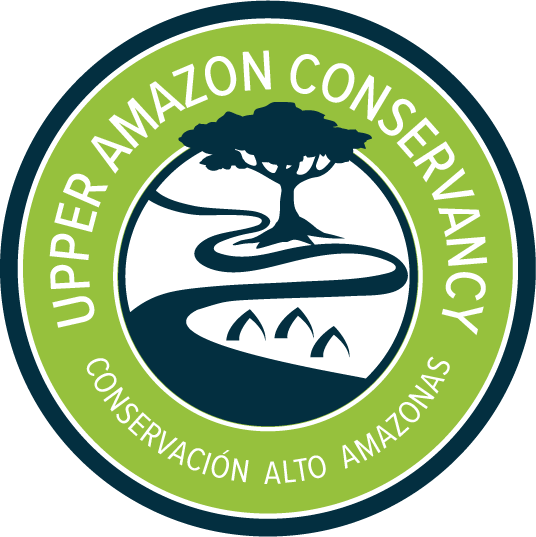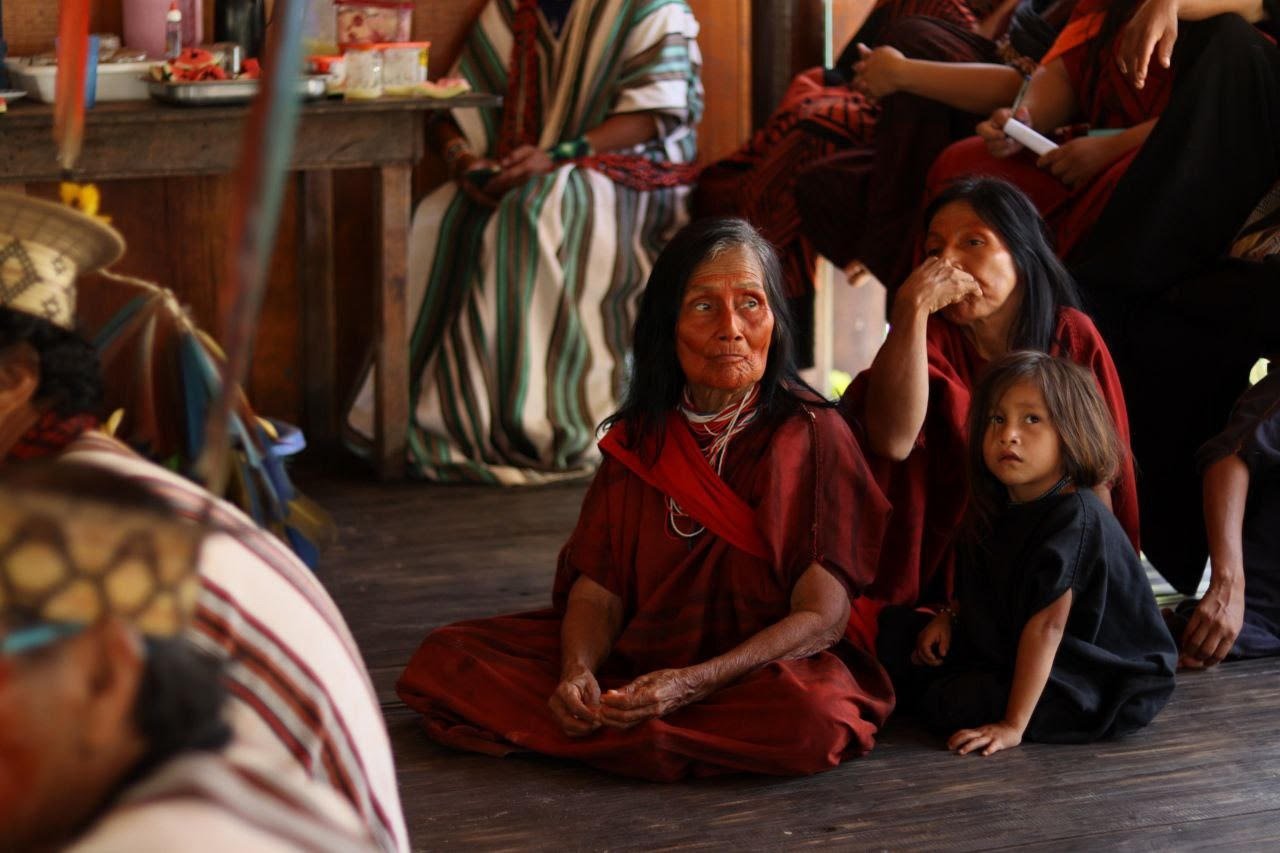The First Indigenous Economic Exchange gathers tribes from the Alto Tamaya, Yurúa and Jurúa watersheds
September 20, 2023
The First Exchange of Experiences in Indigenous Economy in a Transborder Context' was organized by the Asháninka Association of the Amonía River (APIWTXA), the Association of Native Communities of Yurúa (ACONADIYSH), and the Upper Amazon Conservancy (UAC), with the aim of strengthening the capacities of indigenous communities to implement economic development projects with an intercultural, rights-based, and gender equality focus.
This event served as a platform for leaders from indigenous communities living in the upper reaches of the Alto Tamaya, Yurúa, and Juruá rivers to share experiences and improve the sustainable initiatives they are undertaking in their communities. Participants drew lessons from the cooperative model and experiences in sustainable resource management for consumption and commercialization purposes.
Participants of the first indigenous economic exchange in the community of Apiwtxa in Acre, Brazil.
From September 6th to 8th, 2023, the 'First Exchange of Experiences in Indigenous Economy in a Transborder Context', Juruá - Yurúa 2023, took place in the Apiwtxa village on the Amonia River, in the Marechal Thaumaturgo region, State of Acre, Brazil. This event brought together native communities such as El Dorado, Alto Tamaya, Saweto, Dulce Gloria, San Pablo, and Sawawo Hito 40, in the Ashéninka community of Apiwtxa, a leader in indigenous conservation in Acre, Brazil. The main goal was to share their experiences and enhance their sustainable productive initiatives.
The event saw the participation of 50 indigenous leaders and leadership women from Ashéninka, Asháninka, Shipibo Konibo, Yaminahua, and Apolima Arara communities living along the banks of the Alto Tamaya, Yurúa, and Juruá rivers in the Peruvian-Brazilian border region of Ucayali and Acre. Additionally, two female leaders from the Indigenous Women's Program of the Ucayali Regional Organization AIDESEP (ORAU) actively took part.
The activity aimed to strengthen the capacities of native communities in the design, planning, and operation of cooperatives and other productive systems, with an intercultural, rights-based, and gender-equality approach.
Visit of the Ayõpare cooperative craft store
The following topics were addressed during the event:
The importance of community organization for sustainable production, marketing, and food security.
The history of the Ayõpare cooperative in Apiwtxa, the motivation behind its creation, and its contribution to production organization.
The community’s participation in cooperative development.
Women's participation in the cooperative and in the handicraft store.
The impact of the cooperative, projects/developments, and strategic partnerships.
Organization of diversified production systems.
Current challenges, food security, and income generation.
During the opening of the exchange, Wewito Piyako, an Asháninka leader and president of the Apiwtxa association, stated, 'We have organized ourselves so that our community can have its cooperative and develop our work. This is how we started here in Apiwtxa in 1991, and we would also love to collaborate, uniting all communities to have more strength.'
At the beginning of the event, male and female leaders introduced themselves and expressed their expectations regarding the program's development.
The timeline covered the history of the cooperative, reviewing aspects such as the motivation for its creation, its contribution to production organization, community involvement, women's participation, impacts on the community, projects developed, strategic partnerships, production organization, diversified production systems, current challenges, food security, and income generation.
Participants asking questions
Dora Piyako, president of the Ayõpare cooperative, stated, 'This exchange was important to get to know other communities, how they are developing, and how we can help each other strengthen our cultures and protect our territories.'
The exchange allowed participants to experience firsthand the productive, community, and family economy projects taking place in Apiwtxa. Their leaders and technical team demonstrated how these projects operate within the community. Guided tours highlighted various production systems, such as plant nurseries, agroforestry systems, fish farms, chicken and pig pens, as well as artisanal production, providing a more concrete and practical understanding of the topics discussed during previous meetings.
Moisés Piyako, vice president of the Apiwtxa association, expressed, 'The community organization is very important. One of the first things we thought about was managing our forest, and then we started looking at how women could complement the community and strengthen our objectives. It's also important to understand what we are and what we have as traditional wealth; otherwise, we might believe that what comes from outside is better.'
The exchange was a joint initiative involving ACONADIYSH, the APIWTXA Association, ORAU, OPIRIJ, and UAC, with financial support from Conservation International Peru. UAC and CI - Peru are partners in the project 'Action Plan to Support the Transborder Indigenous Agenda of Ucayali (Peru) – Acre (Brazil).'
Visit to the pig farming production system
Alliance with Conservation International Peru
Participants asking questions and sharing information on sustainable development projects.
Asháninka leader present in the program about the Ayõpare cooperative
Upper Amazon Conservancy
Upper Amazon Conservancy works with indigenous communities from Ucayali and its federations to promote a sustainable and profitable life, and thus help in the protection of their lands and adjacent protected areas.
For more information visit:
www.upperamazon.org








